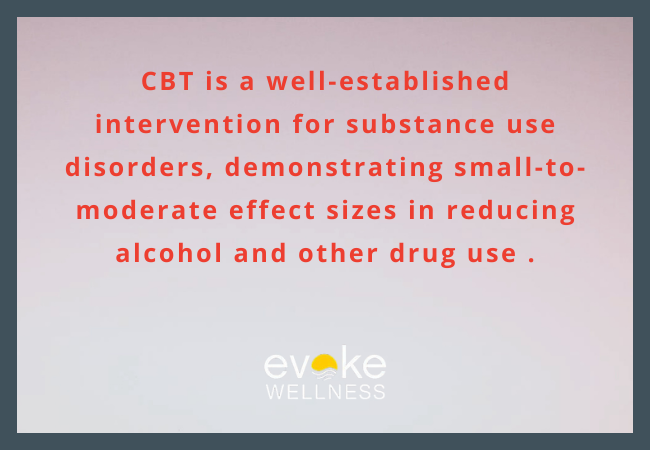When entering inpatient rehab, therapy isn’t just a supporting element of treatment—it’s the cornerstone. While medical detox clears the body of substances, therapy addresses the root causes of addiction, paving the path to long-term recovery. At Evoke Wellness at Cohasset, a wide range of evidence-based therapeutic modalities are woven into every stage of the inpatient experience, empowering clients to not only break free from substance use but also understand themselves more deeply.
Therapy in inpatient rehab provides the structured space needed to heal psychologically, emotionally, and behaviorally. It goes beyond coping skills; it builds a foundation for lasting transformation. Let’s explore how Cognitive-Behavioral Therapy (CBT), Dialectical Behavior Therapy (DBT), group and individual therapy, and other modalities play crucial roles in the recovery journey.
Understanding the Therapeutic Core of Inpatient Rehab
Addiction doesn’t occur in a vacuum. It’s often connected to trauma, mental health conditions, stress, and deeply ingrained thought patterns. Therapy helps unravel these layers in a safe, structured environment. This is one of the primary reasons an Intensive Inpatient Program in Massachusetts is so effective—it immerses clients in a setting where therapeutic support is constant and comprehensive.
Therapy sessions in inpatient rehab are typically scheduled daily and facilitated by licensed clinicians. Clients meet one-on-one with a primary therapist while also participating in group sessions and specialized workshops. This intensive format allows individuals to make rapid gains early in recovery and build momentum as they work toward sobriety.
Cognitive-Behavioral Therapy (CBT): Rewiring the Brain’s Response to Triggers
Cognitive-Behavioral Therapy in Massachusetts is one of the most widely used and researched therapeutic approaches in addiction treatment. Its primary focus is to help individuals identify, challenge, and change negative thinking patterns that lead to destructive behaviors.
CBT teaches clients how to recognize triggers and understand the connection between thoughts, feelings, and actions. For example, someone might identify a belief like, “I’m not strong enough to stay sober,” which then triggers anxiety and a relapse. In CBT, the therapist works with the client to reframe that belief and develop healthier responses.
In inpatient rehab, CBT is particularly effective because it can be applied immediately. Clients can practice the skills they learn in therapy throughout the day, receive feedback from peers and staff, and make real-time adjustments. This consistent reinforcement is crucial for internalizing new behaviors.
Dialectical Behavior Therapy (DBT): Balancing Acceptance and Change
Originally developed for individuals with borderline personality disorder, DBT has proven to be incredibly effective for treating substance use disorders, especially when co-occurring mental health conditions are present. Dialectical Behavior Therapy in Massachusetts emphasizes mindfulness, distress tolerance, emotional regulation, and interpersonal effectiveness.
What sets DBT apart is its balance of two seemingly opposite ideas: acceptance and change. Clients are encouraged to accept themselves and their current reality while also committing to make meaningful changes. This dual focus helps reduce shame and self-judgment—two powerful barriers to recovery.
In the inpatient setting, DBT is typically integrated into both individual and group formats. Clients may participate in skills training groups where they learn techniques for managing emotional distress or tolerating cravings without acting on them. The structure of DBT fits well within the 24/7 therapeutic environment of inpatient care.
The Power of Group Therapy in Healing and Connection
One of the most transformative elements of inpatient rehab is Group Therapy Program in Massachusetts. While individual therapy offers deep personal insight, group therapy brings connection, accountability, and shared experience.
In group therapy, clients learn that they are not alone in their struggles. Listening to others’ stories often helps individuals feel validated and understood—something many people in active addiction have gone without for years. Facilitated by licensed therapists, group sessions provide a space for clients to give and receive support, role-play new behaviors, and explore social dynamics that influence substance use.
There are different types of group therapy, including psychoeducation groups, process groups, skills-building groups, and relapse prevention. Each type serves a unique purpose and contributes to a well-rounded recovery experience. The interpersonal nature of group work helps clients begin to repair trust and develop healthy communication skills.
Individual Therapy: A Safe Space for Deep Work
While group therapy builds community, individual sessions offer a private setting for more in-depth exploration. In the Individual Therapy Program in Massachusetts, clients work one-on-one with a therapist to address trauma, personal history, co-occurring mental health disorders, and other sensitive issues that may not be comfortable to explore in a group setting.
These sessions are highly personalized and goal-oriented. A therapist might use trauma-informed approaches, motivational interviewing, or internal family systems therapy depending on the client’s needs. They also help clients track progress, stay focused, and remain accountable during their inpatient stay.
Individual therapy is often the place where clients begin to uncover the “why” behind their addiction. These insights are essential for sustainable change, especially when paired with actionable strategies and therapeutic support.
Addressing Mental Health in Addiction Treatment
Substance use and mental health conditions are deeply intertwined. Many individuals who enter inpatient rehab have undiagnosed or untreated psychiatric disorders such as depression, anxiety, PTSD, or bipolar disorder. For this reason, the integration of services from a Mental Health Treatment Center in Massachusetts is vital to holistic healing.
Therapists trained in dual diagnosis care are skilled at identifying and addressing mental health challenges alongside addiction. When these issues are left untreated, the risk of relapse increases significantly. Therapy in inpatient rehab often includes psychiatric evaluation, medication management when needed, and specialized therapeutic modalities to treat both conditions simultaneously.
By addressing mental health as a core component of recovery, clients are better prepared to face life’s challenges without turning back to substances.
The Role of Environment and Support
Therapy doesn’t exist in isolation. The success of therapeutic interventions in rehab depends heavily on the environment in which they are delivered. A quality Addiction Treatment Center in Massachusetts provides not only experienced therapists and proven modalities but also a compassionate, structured setting where healing is possible.
The therapeutic community within inpatient rehab—formed by clinicians, support staff, and peers—creates a culture of recovery. Daily routines, shared experiences, and a focus on wellness reinforce the lessons learned in therapy sessions. It’s this immersive environment that often makes the difference between short-term sobriety and lasting change.
Why Choose Evoke Wellness at Cohasset?
Choosing the right inpatient rehab center can be the most pivotal decision on your road to recovery. At Evoke Wellness at Cohasset, our approach to healing is both comprehensive and deeply individualized. We believe that effective therapy doesn’t come from a one-size-fits-all model—it comes from understanding each person’s story, their pain, and their potential.
Our clinicians are experts in trauma-informed care, dual diagnosis, and evidence-based therapeutic techniques such as CBT and DBT. We offer a nurturing and structured environment that allows clients to fully immerse themselves in the healing process. From the moment someone walks through our doors, we create a foundation of trust and emotional safety—an essential ingredient for deep therapeutic work.
Beyond the clinical excellence, what sets us apart is our commitment to holistic recovery. Our therapeutic community encourages not just symptom management but true self-discovery and growth. We don’t rush healing. We walk with our clients through each stage, offering education, encouragement, and empathy. With decades of combined experience and an unwavering focus on long-term outcomes, Evoke Wellness at Cohasset is proud to lead a Residential Treatment Program in Massachusetts that empowers individuals to reclaim their lives with dignity, purpose, and hope.
Conclusion
Therapy isn’t just one component of inpatient rehab—it is the engine that drives sustainable, meaningful recovery. While detox helps clear the physical dependence, therapy helps you understand why the addiction took root in the first place and how to dismantle it from the inside out. Whether through CBT’s thought restructuring, DBT’s emotional regulation strategies, or the insight gained from individual and group sessions, therapy provides the tools to rewrite your story.
At Evoke Wellness at Cohasset, therapy is more than a session—it’s a daily commitment to self-discovery, healing, and transformation. It’s learning how to live in the moment without being overwhelmed by it. It’s realizing that past trauma doesn’t have to define your future. And it’s understanding that support, when consistent and compassionate, can rebuild the parts of you that addiction tried to erase.
If you or a loved one is seeking real change, now is the time to act. We are here to support you every step of the way with clinically sophisticated care, dedicated professionals, and a heart-centered mission. Reach out to our team at 866.931.6429 to learn more about our comprehensive Addiction Treatment Center in Massachusetts and begin your healing journey today.
Frequently Asked Questions (FAQs)
What is the role of therapy in inpatient rehab?
Therapy helps individuals identify the root causes of addiction, learn healthier coping skills, and address any underlying mental health conditions. It is a foundational part of inpatient rehab that supports long-term recovery.
What kinds of therapy are offered during inpatient treatment?
Most inpatient programs, including those at Evoke Wellness at Cohasset, offer evidence-based therapies such as Cognitive-Behavioral Therapy (CBT), Dialectical Behavior Therapy (DBT), group therapy, and individual therapy sessions.
How is therapy different in an inpatient setting versus outpatient?
In an inpatient setting, therapy is more intensive and consistent. Patients engage in therapy daily or several times a week, in a highly structured environment free from outside distractions and triggers.
Can therapy in rehab help with co-occurring mental health issues?
Yes, therapy in inpatient rehab is designed to address co-occurring disorders, such as anxiety, depression, or PTSD, alongside addiction. Treating both simultaneously is essential for a full and lasting recovery.
How long will I be in therapy during inpatient rehab?
The length of therapy depends on your individualized treatment plan, but most inpatient rehab programs last 30 to 90 days, with therapy sessions integrated throughout the stay.





